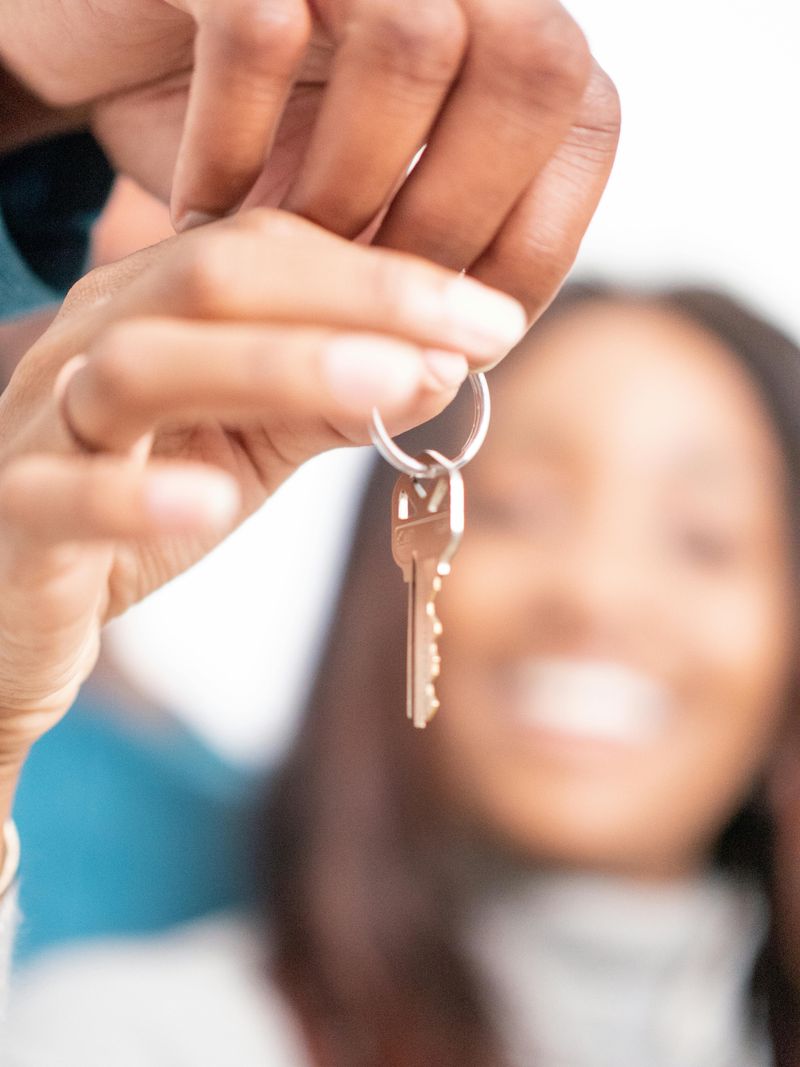15 Subtle Yet Powerful Ways Fake Friends Expose Their True Colors

True friendships are priceless treasures that enrich our lives with support, joy, and genuine connection. Unfortunately, not everyone who claims to be a friend has your best interests at heart. Learning to spot the warning signs of fake friends can save you from unnecessary heartache and emotional drain. These subtle behaviors often reveal who’s truly in your corner and who’s just pretending to be.
1. They Only Reach Out When They Need Something

Missing in action for weeks, then suddenly appearing with a favor request? Classic fake friend behavior. These people treat friendship like an ATM—they make withdrawals without deposits.
Watch for patterns in their communication. If texts only arrive when they need help moving furniture, need to borrow money, or want emotional support for their crisis, you’re dealing with a one-sided relationship.
Genuine friends maintain contact during good times and bad, not just when it benefits them. Their sudden appearances followed by predictable disappearances tell you everything about their priorities.
2. They Downplay Your Achievements

Landed a promotion? Watch how certain friends react. Rather than sharing your excitement, fake friends might say, “Oh, that company promotes everyone eventually” or “I guess they were desperate to fill the position.”
This subtle undermining happens because your success threatens their ego. Instead of celebrating your win, they immediately change the subject or find ways to diminish its importance.
Real friends amplify your joy, not reduce it. They understand that your achievement doesn’t diminish their worth. When someone consistently rains on your parade, they’re showing you who they really are.
3. They Gossip About You

Finding out your personal struggles are now common knowledge among mutual friends? That’s no accident. Fake friends collect your vulnerabilities like trading cards, ready to play them when convenient.
The information you shared in confidence becomes their social currency. Maybe you’ve noticed people knowing details you never told them, or heard your exact words repeated back through someone else.
Trustworthy friends create safe spaces where your secrets remain protected. When someone treats your private life as public entertainment, they’ve revealed their true character—and it’s not one deserving of your trust.
4. They Rarely Initiate Plans

Notice who’s always sending the first text or making plans. Fake friends enjoy your company but never put in the effort to arrange meetups themselves.
The experiment is simple: stop initiating contact and see what happens. With insincere friends, the silence becomes deafening. Weeks or months might pass without a word from them, proving they weren’t invested in maintaining the connection.
Friendship requires mutual effort. When you’re consistently the one reaching out, planning gatherings, and keeping the relationship alive, you’re likely dealing with someone who values your friendship only when it’s convenient for them.
5. They Make Everything About Themselves

Started sharing your breakup story? Somehow, ten minutes later, you’re hearing about their dating history instead. This conversation hijacking is a telltale sign of a self-centered friend.
These people have an uncanny ability to redirect any topic back to themselves. Your cancer scare reminds them of their health anxiety. Your job loss makes them talk about their career trajectory.
Healthy friendships involve balanced exchanges where both people feel heard. When someone consistently steals the spotlight during your vulnerable moments, they’re showing you that your experiences matter only as stepping stones to discuss themselves.
6. They’re Jealous of Your Other Friendships

“You’re hanging out with Sarah again? I thought we were close friends.” Comments like these reveal a possessive streak that has no place in healthy friendships.
Fake friends often monitor your social media, questioning who you spend time with or making passive-aggressive remarks about your other relationships. This territorial behavior stems from insecurity and a desire to control your social circle.
True friends celebrate the expansion of your social network. They understand that having multiple meaningful connections enriches your life. When someone tries to isolate you or makes you feel guilty for having other friends, they’re showing their own unhealthy attachment style.
7. They Disappear During Your Hard Times

Life threw you a curveball—a family illness, job loss, or breakup—and suddenly your “friend” is nowhere to be found. Their absence during your darkest hours speaks volumes about their commitment.
Fake friends excel at celebrating good times but vanish when things get tough. They’ll have convenient excuses: they’re “going through something too” or “don’t know what to say.” The truth is, supporting someone through difficulty requires emotional investment they’re unwilling to make.
Real friendship shines brightest during life’s storms. Someone who consistently disappears when you’re struggling has shown you exactly how much your relationship matters to them—very little.
8. They Never Apologize

Made plans for Friday night? They canceled last minute without explanation. Called them out on hurtful behavior? They turned it around to blame you instead.
Fake friends have an allergy to accountability. When confronted with their mistakes, they’ll deflect, justify, or counter-attack rather than simply saying “I’m sorry.” This inability to acknowledge wrongdoing protects their ego but damages your relationship.
Healthy friendships include mutual responsibility and the humility to admit mistakes. Someone who never apologizes or takes responsibility is showing you they value being right over being kind—and that’s not what real friendship looks like.
9. They’re Never Happy for Your Success

Bought your first home? Watch for the friend who immediately points out potential plumbing issues instead of congratulating you. Their lukewarm reactions to your victories aren’t accidental—they’re revealing.
Fake friends struggle with genuine celebration because your success triggers their insecurity. They might offer backhanded compliments: “Wow, I’m surprised you could afford that!” or immediately one-up you: “That’s nice, but wait until you see what I’m buying.”
Authentic friends amplify your joy without comparison or competition. Their excitement for your achievements feels genuine because it is. When someone consistently fails to celebrate with you, they’re showing their true colors through their restraint.
10. They’re Reluctant to Share Their Life with You

Friendship thrives on mutual vulnerability, but fake friends maintain strict information asymmetry. You know little about their personal struggles, family dynamics, or genuine feelings despite sharing yours openly.
This one-way transparency creates an unbalanced relationship where you’re emotionally invested while they remain distant. They deflect personal questions with vague answers or change the subject when conversations turn meaningful.
Authentic connections involve reciprocal sharing that deepens over time. When someone consistently keeps you at arm’s length while benefiting from your openness, they’re creating a power imbalance that serves them—at your emotional expense.
11. They’re Quick to Judge

Made a mistake? Fake friends transform into instant critics rather than supporters. Their harsh judgments come without nuance or compassion for your circumstances.
These friends deliver cutting remarks disguised as “just being honest” or “telling it like it is.” Notice how their critiques rarely come with helpful suggestions or understanding. Instead, they leave you feeling small and defensive.
True friends balance honesty with kindness. They understand that everyone makes mistakes and needs support, not condemnation. When someone consistently judges you harshly for human errors they themselves likely make, they’re showing you their friendship lacks the foundation of empathy.
12. They’re Inconsistent in Their Behavior

Monday they’re your biggest cheerleader; Tuesday they’re cold and distant. This emotional whiplash leaves you constantly guessing where you stand.
Fake friends display Jekyll and Hyde personalities depending on their mood, who else is around, or what they need from you. You’ve likely noticed how they’re warm when alone with you but dismissive in group settings, or suddenly attentive when they want something.
Reliable friends maintain consistent behavior regardless of circumstances. Their treatment of you doesn’t fluctuate wildly because their care is genuine. When someone’s attitude toward you changes like the weather, they’re showing you that their friendship is conditional at best.
13. They’re Competitive with You

Mentioned your 5K time? They immediately share their marathon story. Bought a new car? They’re suddenly shopping for a luxury model. This constant one-upmanship reveals a friend who views you as competition rather than companion.
Fake friends turn your life events into comparative measuring sticks. Everything becomes a subtle contest where they must emerge superior. You might notice they never allow you to shine without inserting their own accomplishment.
Healthy friendships celebrate individual journeys without comparison. When someone consistently tries to outdo you rather than simply enjoy your company, they’re showing you that their ego needs matter more than your relationship.
14. They Use Over-the-Top, Insincere Compliments to Manipulate

“You’re literally the most amazing friend ever!” they gush, right before asking to borrow your car. Sound familiar? Excessive flattery from fake friends isn’t genuine appreciation—it’s strategic manipulation.
These friends deploy compliments as tools to soften you up before making requests. The praise often feels slightly off—too intense, poorly timed, or disconnected from reality. You might notice it appears primarily when they want something.
Authentic compliments come naturally and appropriately. They reflect genuine observation, not calculation. When someone consistently layers on thick praise right before asking for favors, they’re showing you their words are currency, not honesty.
15. They Guilt-Trip or Emotionally Manipulate You

“After everything I’ve done for you…” This classic guilt-trip opener reveals a friend who keeps emotional scorecards. Fake friends weaponize your conscience to control your behavior.
These manipulation masters remind you of past favors when you set boundaries. They might exaggerate how your actions hurt them or use dramatic statements like “I guess I just care more about our friendship than you do” when you can’t meet their demands.
Healthy relationships respect autonomy without emotional penalties. When someone consistently makes you feel guilty for having normal boundaries or needs, they’re showing you that your primary value is compliance, not companionship.

Comments
Loading…